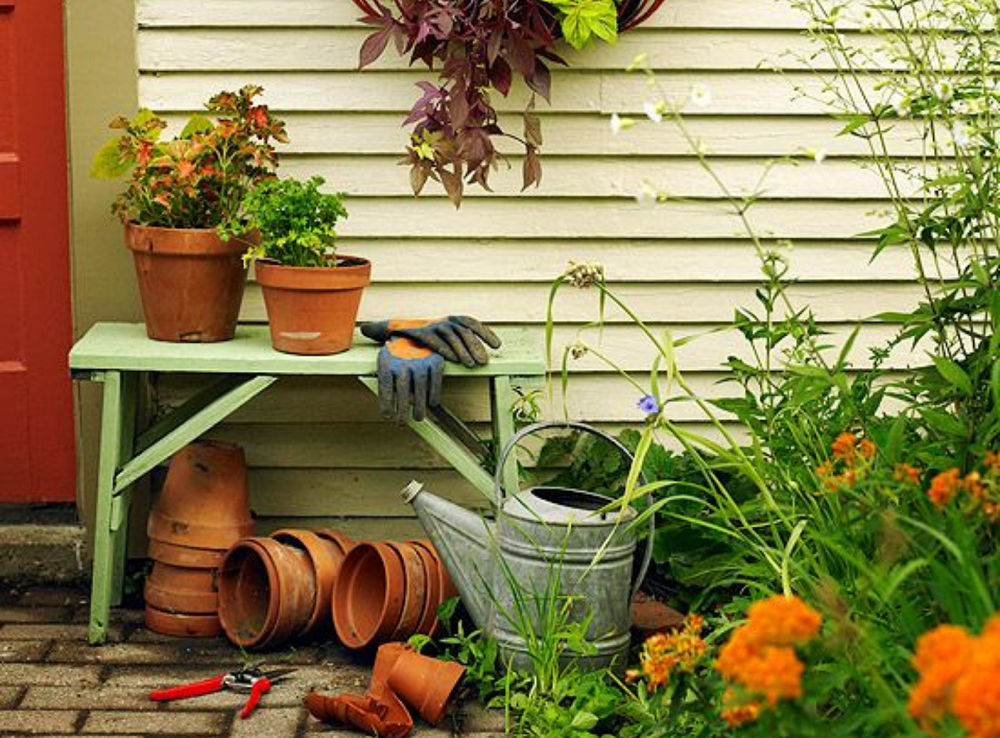Benefits of Fish Washing Water to Fertilize your Favorite Plants

Fertilize your Favorite Plants
(Istimewa)Repurposing food scraps have been on the rise lately as more and more households try to be more conscious about their waste. As reported from the Food and Agriculture Organization of the United Nation websites, it’s estimated that one-third of all food produced globally is lost or goes to waste. This statistic doesn’t just talk about the leftovers we throw away. It also means the stalk, peel, or leaves of produce that are being thrown straight away into the landfill. The United Nations Organizations along with other groups from all over the world are urging more households to utilize all parts of the produce they purchase and try to repurpose waste as much as possible.
This results in the many tips and tricks available to repurpose scraps that we usually toss away. For example, most people know to use their food scraps to make compost for their garden, then there are tips on how to make a cleaning solution using the unused rind of citrus, and another on collecting peels and stalks of vegetables to boil them to make vegetable broth.
Now there’s one tip that can be beneficial for you plant lovers. Have you ever thought of repurposing the water used for washing fish to water your plant? This quite unorthodox method of repurposing the fishy water for plants is so beneficial in reducing waste and also saving up on fertilizer.
The benefits and content of fish washing water
It may seem weird to keep the water used for washing fish when you’re so used to just pouring them down the drain. But this little tip can help provide extra nutrients for the plants that it usually gets from fertilizer. As reported from kompasiana.com, Director General of Aquaculture back in 2007 stated that fish washing waste can increase the nutrient content in liquid fertilizer which contains Nitrogen, Phosphorus, Potassium, and C-organic elements. Most of the beneficial nutrients in fish washing water are due to the blood, minerals, and fat that are washed away as the fish is being cleaned. This means that other than Nitrogen, Phosphorus, Potassium, and C-organic, fish washing water also contains calcium, iron, magnesium, manganese, zinc, and a few vitamins such as A, D, B6, and B12. All of these nutrients are beneficial for the growth of the plant.
The use of fish washing water has the same benefit as using regular liquid fertilizer, that is to provide nutrients to the plants. Here are some beneficial benefits of using fish washing water for your plants:
- Increase the activity of soil bacteria that fertilize the plant
- Accelerating the formation of fruits and flowers
- Stimulate plant vegetative growth such as leaf and stem growth
- Strengthening leaf, flower, and fruits, preventing their losses
How to use fish washing water on plants
Before directly pouring the fish washing water into the plant, make sure that there are no big pieces of fish left in the water. The big piece might attract pests that can endanger the plant. Straining it before pouring it might help in catching unwanted pieces into the soil. While fish pieces can be a good source of nutrients to the soil and plants, adding them straight on can mean continuous decomposition near the plants. This unfinished decomposition will require most of the nitrogen in the soil, making the supply of nitrogen for the plant lessened and could result in nitrogen deficiency.
The application of strained fish washing water is quite simple. The same with any liquid fertilizer, all you need to do is pour the fish washing water into the soil of the plant. Careful not to wet the leaves too much with it. While it might eventually drip down and dry, the faint smell of fish waste might attract flies, cats, and other animals. Instead, try to water straight to the soil around the plants.
Add fertilizer to optimize crop fertility
Fish washing water has a lot of beneficial nutrients and can be a great alternative to chemical fertilizer alternatives. But the number of nutrients in it alone is not enough to continuously supply the plant nutrition needed. It is why along with utilizing fish washing water, it is advisable to keep using the regular recommendation of fertilizer. This means along with the fish water fertilizer, don’t forget to add regular fertilizer such as NPK to optimize plant growth. Especially if you notice that there’s yellowing on the leaf as a sign of nitrogen deficiency from the composting fish pieces.
Written by: Safaanah
